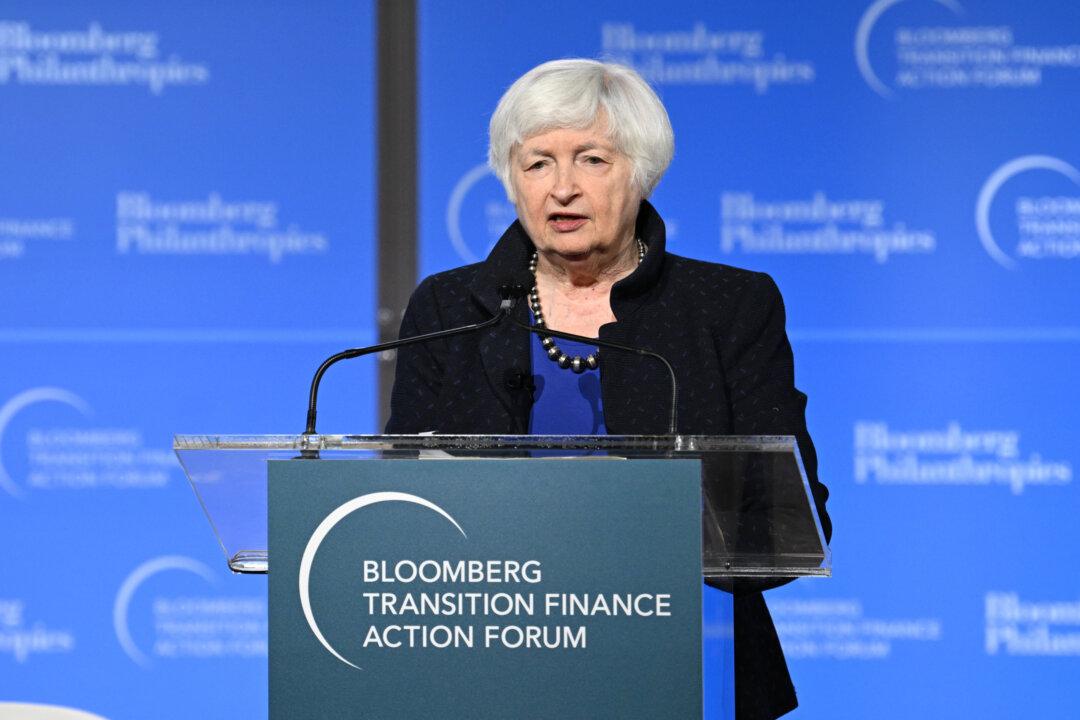The Treasury Department has unveiled a new set of guidelines for financial institutions with net-zero carbon emissions goals as the Biden administration continues to promote its green energy agenda.
The new voluntary guidelines were announced by Treasury Secretary Janet Yellen during a speech at the Bloomberg Transition Finance Action Forum in New York on Sept. 19.




